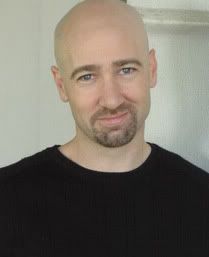China Stories Pt. 37: Epilogue
"Epilogue" sounds a little grandiose for what is really just the last in a string of scattered recollections of things that happened to me 18 years ago. But there it is.
The first couple of days in Hong Kong were a blur, and caused something akin to whiplash. I stayed with Katherine's family, in their sprawling high-rise condo with epic, sweeping views of Hong Kong harbor.
On our second night in Hong Kong, a friend of Katherine's family invited us all out to dinner - at the Hong Kong Jockey Club. So we descended from the 35th story apartment and drove to the racetrack, where we were the guests of honor at a meal of obscene splendor.
Fine wines were poured. Enormous steaks were foisted upon us. From our table, we had a view across the racetrack, where an event taking place. It was a pop concert, a benefit for the students. We could follow the action, such as it was, on the giant "diamond vision" screens to the side of the stage. They showed pictures and video of the protesters, defiantly flashing their "V for victory" signs.
Our host proposed a toast.
"To freedom," he said, raising his glass of wine.
I felt a little ill. I looked at Bob and Katherine, and I could tell they felt likewise. We certainly supported the sentiment. But we were not even two days removed from being among the students, who were living on the cold pavement of the square, surviving on donated food, and facing the very real prospect of violent suppression at the hands of the army. We had gone from being with these people who were making real sacrifices for democracy, to sitting in this lavish environment, expressing a sentiment almost perfectly devoid of any substance. Our friends (and our friends' friends) were still out there. It seemed perverse, even a little profane.
Of course the crackdown came, as we felt sure it would. In the early morning hours of June 4, 1989, we watched it unfold on TV with a mix of shock and grief. We watched, cried, and spoke little. And we worried, since there was so much uncertainty - how many were killed- hundreds? Thousands? Would there be trials? Executions? And what had happened to our friends?
After the fact, I felt tremendously guilty about having left before the crackdown. I felt guilty for leaving in part because I had come to feel that those of us who had spent time with the protesters had taken on an obligation to bear witness, and that by leaving, I had failed the students. But a lesser part of me also felt a tinge of regret for leaving before the "action," because I wouldn't have those stories to tell. I wouldn't be able to say I was there on June 4th. I felt ashamed for having such selfish thoughts.
Our friends were, thankfully, okay. One of my Chinese friends came to the US not long after June 4. She had been on the streets on the evening of June 3, and had been beaten by the army. She was extremely lucky to have gotten out. One of her supervisors at the University knew that she had participated in the protests; so had he. But he supported her application to go abroad. Shortly after the crackdown, she'd had to undergo numerous interviews to get permission to go abroad, and despite Beijing's stifling summer heat, she'd had to wear long-sleeved shirts to the interviews to cover the bruises.
I was able to spend Thanksgiving 1990 in Beijing with two more of my Chinese friends, and they subsequently came to the US to study as well.
After returning from Beijing, Bob earned a PhD in International Relations. He went on to pursue a career in academia, international affairs and government. I believe he currently holds a Post of Some Consequence at the United Nations.
Randy stayed past June 4, and did bear witness to the brutal aftermath of the crackdown. After returning home to Iowa, Randy founded a program to teach Mandarin to high school students. I was fortunate to be able to go back to China with Randy, serving as a chaperon for a group of his students in 1994.
Katherine lived in New York for awhile, but then got married and moved to the northeast. We eventually fell out of touch.
I became smitten with Hong Kong, and returned to live there from 1991 to 1993. I moved back to Beijing again, too, from 1997 to 1999.
Apparently, I hadn't gotten China out of my system. I probably haven't still.


